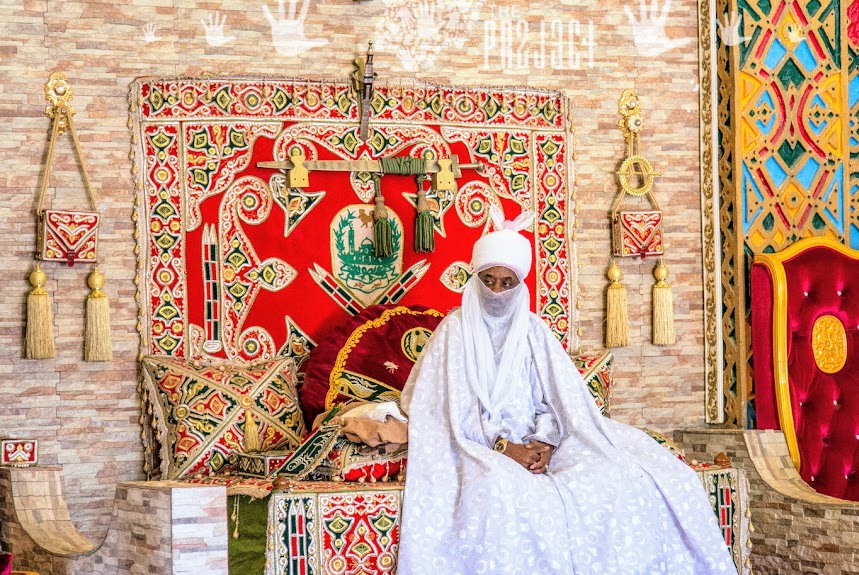By Abdul Qowiyy Olalekan Badmus, LL.B (Hons), Islamic Law.

Conservatism and Progressivism are terms often attributed to political philosophy, albeit they are greatly influenced by and have strong roots in sociological ideologies, religious inclinations and traditional heritages.
In countries like Nigeria, where people are largely divided on social issues like the Almajiri tradition, girl-child issues, marriage and population, etc., incessant clashes between the conservatives and the progressives are common and often ubiquitous in the debate over how certain social vices should be dealt with and the best way to implement reforms.
In principle, Progressives believe that society’s root issues need to be exposed, dealt with, and corrected. They are generally not content with accepting things as they are for the sake of tradition, and are willing to uproot even longstanding social traditions to create what they see as a better, fairer, and more equal society. In short, they value reform over tradition.
On the other hand, Conservatives place great faith in the status quo. To them, it is the traditional social values of a society that hold the nation together. Therefore, challenging these values or seeking to reform them represents a threat to the security and identity of the nation. They often clash with whoever chooses to challenge the status quo.
However, what does Islam has to offer in light of the polarity between the two groups?
Talking from the context of the contemporary application of both ideologies, the conservatives might be regarded extremists; due to their exaggerated reverence of the status quo, without properly considering changes that ought to be implemented, due to necessity of time. While on the other hand, the progressives might also be regarded too flippant; for defiantly approving certain social vices that are antithetical to the core values of the society.
However, Islam has always taught us to be moderate in all facets of our life. Allaah says in the Qur’aan: “And thus we have made you a moderate community” (Al-Baqorah: 143).
Islam, by its principles and jurisprudence, is conservative and progressive at the same time. In Islam, there are immutable injunctions (al-thawābit) which must be preserved, most of which centers on matters of worship and Creed and every Muslim ought to be conservative when it comes to upholding these injunctions.
In the same vein, there are teeming issues on which Islam is progressive, most of which has to do with issues of politics and worldly affairs. These issues are largely unfixed (al-mutagayyirāt) and are left to be determined by the competent jurists and leaders; to suit the changes in places, persons and periods, in a way that would bring a preponderant benefit (maslaha rājihah) with less or no evil.
I will like to conclude this piece with a pertinent issue, which is the question of how Islam wants the progressive minds to introduce reforms and changes.
As earlier alluded to, in a typical Islamic society, the enthronement of progressive reforms and changes is vested in the scholars and the political leaders; the scholars would consider the compatibility of these reforms with the principles and objectives of the Shari’ah, while the political leaders would use their influence and their political might to implement the scholars’ opinions and fataawa.
However, if one is struck in a situation whereby the political class tend to be unyielding to progressive ideas, even when it is obvious that they are needed and Shari’ah compliant, this is when the principle of diplomacy comes in. The rule is that, if you are capable of challenging the societal vices verbally without any preponderant evil consequences (mafsadah rājihah) you may go ahead. But if doing so will be detrimental, then do the part you can afford, even if it is just by leading with example within your domain and within the limits of the available resources.
History and contemporary events have taught us that it only takes time for the conservatives to accept the reality of moderate progressive ideas, even if they choose to reject them at inception. However, if progressive minds fail to apply diplomacy in face of dissenting powerful conservatives, they should ready to pay the supreme price; although, in an apparent display of hypocrisy, the conservatives may still go ahead to implement the ideas of the embattled progressives.
On the authority of Abu Sa`eed al-Khudree (may Allah be pleased with him) who said:
I heard the Messenger of Allah –peace and blessings upon him,- say, “Whosoever of you sees an evil, let him change it with his hand; and if he is not able to do so, then [let him change it] with his tongue; and if he is not able to do so, then with his heart — and that is the weakest of faith.” [Reported by Muslim].
Also, Umm Salamah (May Allah be pleased with her) reported:
The Prophet –peace and blessings upon him- said, “You will have rulers some of whom you approve and some of whom you will disapprove. He who dislikes them will be safe, and he who expresses disapproval will be safe, but he who is pleased and follows them (will be indeed sinful)”. His audience asked: “Shall we not fight them?” He replied, “No, as long as they establish Salat amongst you”. [Reported by Muslim].
____________________________
The writer is a postgraduate student in Judicial Studies at Faculty of Law and Judicial Studies, Islamic University of Madinah, Kingdom of Saudi Arabia.
Written on: 3/10/2020



Marvelous write up, May Allah safeguard us.